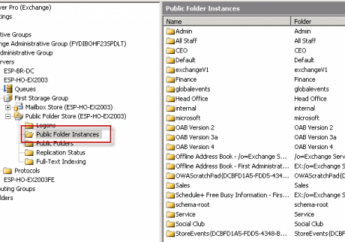Breaking Down The Differences Between LXP And LMS
by Abdul Aziz Mondal Uncategorized 16 August 2023

Are you trying to decide between LXP vs LMS for your organization? It can be a tricky decision, as there are different factors to consider. Here we’ll break down the differences between LXP and LMS platforms so you can choose the best for your organization’s needs.
Understanding The Purpose Of LXP And LMS

LXP, or learning experience platform, and LMS, or learning management system, are two different platforms used for employee training and development.
An LXP aims to provide employees with a more engaging and personalized learning experience. It curates and recommends relevant content based on individual interests and learning preferences. LXPs also emphasize social learning and collaboration, allowing employees to connect and share knowledge.
Alternatively, an LMS serves the purpose of managing and delivering online courses and training materials. It acts as a centralized platform for organizing and tracking employee learning activities. Standard features offered by LMSs include course enrollment, progress tracking, and assessments.
It’s worth noting that even though both platforms aim to enhance employee learning, they vary in their objectives and features. Comprehending these distinctions is crucial to determine which platform best suits your organization’s training and development needs.
Use Cases For LXP And LMS
When choosing between LXP and LMS platforms, it’s essential to consider each use case. LXP platforms are ideal for organizations that prioritize personalized and engaging learning experiences. They are handy for industries that require continuous learning and upskilling, such as technology or healthcare. LXP platforms excel in scenarios where employees need access to content and want to collaborate and learn from each other.
LMS platforms best suit organizations that deliver and track formal training programs. They are commonly used in industries like compliance training or onboarding new employees. LMS platforms provide a structured and organized approach to employee learning, with features like course management and progress tracking.
Understanding the specific use cases for LXP and LMS platforms will help you determine which platform best fits your organization’s training and development needs.
Advantages And Disadvantages Of LXP And LMS
Both LXP and LMS platforms offer unique advantages and disadvantages for organizations.
The benefits of LXP platforms include their focus on personalized and engaging learning experiences. LXPs use AI-driven analytics to recommend relevant content to individual learners, enhancing their motivation and knowledge retention. Additionally, LXPs promote social learning and collaboration, allowing employees to connect and share knowledge.
LMS platforms excel in providing a structured approach to employee training and development. They offer features for course management, progress tracking, and assessments, making them ideal for industries that require formal training programs or compliance training. LMS platforms also often integrate with other systems, such as HR or talent management software, streamlining organizational processes.
Disadvantages of LXP platforms include a potentially higher cost and complexity of implementation. LXP platforms may require more resources for content curation and AI-driven analytics. Emphasizing personalized learning may result in less standardized training materials and assessments.
Disadvantages of LMS platforms include a potentially less engaging learning experience for employees. The focus on course management and tracking may prioritize administrative tasks over personalized learning. LMS platforms may also have limited content curation and collaboration features compared to LXPs.
When considering whether to utilize an LXP or LMS platform, organizations must carefully evaluate their specific needs and goals. Taking the time to weigh the advantages and disadvantages of each platform carefully can help ensure the chosen platform aligns with the organization’s overall training and development objectives.
Factors To Consider Before Choosing Between LXP And LMS
Before deciding between LXP and LMS platforms, there are several factors that organizations should consider. First, assessing the organization’s specific training and development needs is essential. Consider the types of learning experiences most valuable and practical for employees and the industry requirements for compliance training or upskilling.
Next, evaluate the available resources within the organization. LXPs may require more resources for content curation and AI-driven analytics, while LMSs may require more administrative support for course management and tracking. Consider each platform’s budget and cost implications, including implementation and ongoing maintenance expenses.
Integration capabilities should also be considered. Determine whether the chosen platform can integrate with other systems, such as HR or talent management software, to streamline organizational processes.
In decision-making, involving key stakeholders like employees and trainers is crucial. By collecting their input and feedback, you can ensure that the platform meets their expectations and needs. This way, organizations can make informed decisions and choose the forum that best aligns with their training and development strategies.
Additional:







































































































